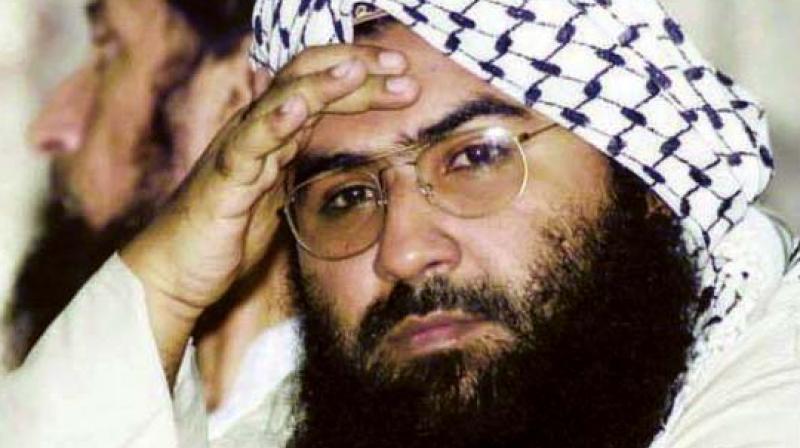As Beijing rescues Azhar, it’s time for ‘other means’

China once again blocked the listing of specifically anti-India terrorist outfit Jaish-e-Mohammed’s founding chief Masood Azhar as an “international terrorist” in the UN Security Council on Wednesday. Earlier, it had done so in 2009, 2016 and 2017.
The difference this time is that the move in the UN against Azhar came immediately after the JeM attack in Pulwama in which over 40 CRPF jawans were killed. JeM had flagrantly claimed credit for the assault, which led to a limited military exchange between India and Pakistan as India dropped bombs on a Jaish facility inside Pakistan, attracting in response intrusion into its airspace by its revanchist western neighbour.
This has underlined the risk of regional peace and stability being threatened by actions initiated by Pakistan-based terror organisations which are widely seen as being nurtured by Pakistan’s military machine.
Beijing has shown yet again by vetoing the anti-Azhar move in the UNSC that it is not especially worried about the possibility of regional peace being jeopardised, or even about the free run that terrorists enjoy with Pakistan’s blessings provided that terrorists do not pose threats within its own territory. Pakistan goes out of its way to ensure this.
In the light of the present goings-on, it is hard not to see Beijing’s action in the wider dynamics of regional affairs. From Beijing’s perspective, this involves continuing with its objective of the containment of India in the company of Pakistan, which of course hosts the JeM and its top leaders and looks to their political comforts.
There is another factor in addition. Lately, China’s burgeoning infrastructure investments in the China-Pakistan Economic Corridor — which culminates in a military port for China in Gwadar — has cemented the Islamabad-Beijing axis against India.
The JeM has already been proscribed as an international terrorist group by the UN. As such, it is logical that Azhar, its founder and leader, also be brought under restraint by the UN. This would have happened 10 years ago if China had cooperated at that time. It is the only holdout in the entire UN system which has given succour to a terrorist, and is prepared to earn the opprobrium of the world community in doing so. The resolution against Azhar in the UNSC was led by France, the United States and Britain, and was co-sponsored by as many as 13 nations, among them key European powers as well as Saarc members Bhutan, Bangladesh and the Maldives. But Beijing remained unmoved. Prime Minister Narendra Modi and China’s President Xi Jinping had held an “informal summit” at Wuhan in China in April 2018 in which they had agreed to be mindful of one another’s core concerns. For India, this expectation has clearly not been met. After Beijing’s latest intervention in favour of a an international terrorist, New Delhi has rightly asserted that it would seek to use “all means available” to bring Azhar to justice.

